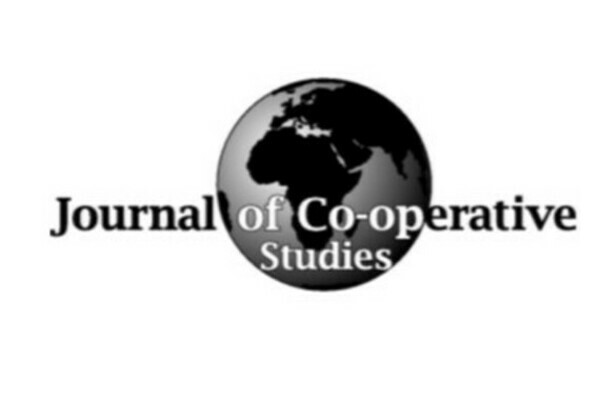Refereed articles
Co-operative identity
Peter Somerville, pp. 5-17
The purpose of this paper is to reflect on the concept of co-operative identity. Co-operatives are claimed to have distinct values and institutional forms, different from private corporations, public bodies and 'nonprofits' or charities. Essentially, however, co-operatives are member-owned, democratically controlled enterprises. Over the years, it appears that they tend to lose their distinct identity (the so-called 'degeneration thesis'). This paper looks at why this occurs and how the distinct identity of co-operatives can be sustained. It points to the growth, in recent years, of community organisations that do not call themselves co-operatives but nevertheless can be argued to exhibit a co-operative identity. It concludes by suggesting that the experience of these 'community co-operatives' may contain lessons for the co-operative movement.
Regional co-operation: A strategic network perspective on a customer-owned organisation
Terhi Uski, Iiro Jussila, Juha-Matti Saksa, pp. 18-29.
In recent years, the concept of network has been of interest to many scholars in the fields of management and sociology. The research on networks has focused on the benefits of networking and the relationships between network actors. Co-operative organisations have received only little academic attention in network research, despite of the fact that they seem to be closely related to the concept of network. In this article, we build on literature on co-operation and networking to analyze the strategic importance of formal and informal networks on a co-operative organisation. The empirical part of the article is based on thirteen qualitative in-depth interviews of the case co-operative managers and other focal actors of the network of a regional S Group co-operative (Finland). According to our analysis both dimensions of the network are of significant strategic importance to the co-operative.
Happiness, politics and co-operative principles
Mark Kaswan, pp. 30-40.
How are co-operatives different from traditional capitalist enterprises? Are these differences more than superficial, and is there any deeper, political significance to them? I argue that what makes co-operatives different is their basis in an ideology that emphasises social institutions, which stands in stark contrast to the individualism implicit in capitalism. The case for co-operatives on the basis of this ideology was perhaps best articulated in the 1820s by William Thompson, one of the leaders of the co-operative movement. Thompson's theory is contrasted with that of Jeremy Bentham, from whom Thompson takes many central concepts - although he takes them in a very different direction. Bentham's and Thompson's theories diverge because of their different understandings about what constitutes happiness and "the greatest happiness of the greatest number". Bentham equates happiness with pleasure, an individualistic concept, while Thompson argues that it happiness is best understood as well-being, which is much more of a social condition. This difference leads the two to very different conclusions about the underlying principles of social institutions. Ultimately, it is shown how Thompson's theory can be understood as providing an ideological foundation for the co-operatives as defined by the International Co-operative Alliance, which raises some questions and poses some challenges for co-operatives today.
Short Articles
The role and potential of co-operatives in the poverty reduction process: A research agenda
Johnston Birchall and Richard Simmons, pp. 43-51.
This paper is an introduction to a current research project on co-operatives and poverty reduction. Its purpose is a little different from that of the conventional journal article as it has been written to inform academic researchers, potential research partners, key informants and international collaborators of why the project has been set up, what it aims to achieve, how we intend to go about doing the research, and how we hope the results will be disseminated. It begins by summarising the 'mixed history' of co-operatives in relation to poverty reduction, distinguishing between the different trajectories in developed countries, the excommunist countries and developing countries. Then it sets out some arguments as to why co-operatives might be thought to have comparative advantages in reduction of poverty. It defines the two main concepts: co-operatives and poverty. Then it sets out the project's aims, its research strategy and its methodology, drawing on the literature on poverty traps and organisational comparative advantage. The expected outputs are described, and the project's ethical stance is explained.
Living the vision: Co-operative principles in contemporary practice. An address to the UK Society for Co-operative Studies, September 2006
Stephen Yeo, pp. 52-57.
Responding to the title of the 2006 Society for Co-operative Studies conference, this keynote address drew attention to four respects in which our situation as co-operators attempting to "live the vision" may be said to be "new': the end of "the Co-op"; the end of Labour-led democratic politics; information and communications technology; and "endism". The Address then offered three "resources for a journey of hope" for co-operative and mutual enterprises: fair trade; education; and mutuality.
Book reviews
The Democracy Principle – Farmer Co-operatives in Twentieth Century Australia. By Gary Lewis.
Reviewed by Edgar Parnell, pp. 58-59.
Market Schmarket: Building the Post-Capitalist Economy. By Molly Scott Cato.
Reviewed by Mike Aiken, pp. 60-61.
Robert Owen: A New View of Society and Report to the County of Lanark. Edited with an introduction by V A C Gatrell.
Reviewed by Jim Craigen, p. 62-63.










